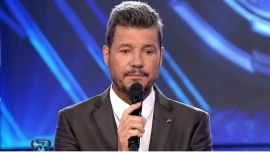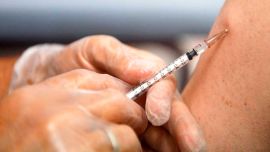While it may seem unlikely, a global pandemic can sometimes be an opportunity. This seems to be the case for Juan Guaidó, Venezuela’s opposition leader or interim president (depending on your view), who managed to address the United Nations General Assembly this week without actually addressing it.
The virtual format of this year's UN gathering, and the overall lack of popular knowledge about how the UN actually works, allowed him to transmit an online message to his Venezuelan constituents and his international allies under “the framework of UNGA,” overshadowing Nicolás Maduro’s actual speech to world leaders.
More important is the message Guaidó delivered. Far from his more traditional calls for restoring democratic institutions and advancing peaceful means to displace Venezuela´s dictatorial regime, the 37-year-old opted for a strategy previously proposed in a much more superficial yet thunderous manner: he invoked the UN’s famous “responsibility to protect.”
With no #R2PYa hashtags or belligerent wording, Guaidó summoned the international community and emphasised its responsibility to safeguard the millions of Venezuelans living under Maduro’s rule. He not only referred to common phrases linked to the ‘R2P’ debate, but showed depth and knowledge with his institutional references. This was exemplified in his call for member states to contemplate a strategy for what happens once all diplomatic measures are exhausted, a reference to preparations for taking “collective action, in a timely and decisive manner,” as outlined in paragraph 139 of the UN’s 2005 World Summit Outcome Document. Guaidó further elaborated, and argued, that appropriate diplomatic, humanitarian and other peaceful means have been taken without effect, in an appeal to the so-called “grey states”(R2P sceptics but not critics).
Guaidó’s citing of alleged crimes against humanity was also key. Not only are these one of the four specific crimes contemplated under the framework of the Responsibility to Protect protocol, Venezuela’s opposition can cite a recent 400+-page report from a UN-appointed panel and the independent international mission’s findings. The document specifies the existence of “patterns of violations ... that were highly coordinated” by the authorities, including targeted repression, political assassinations, extrajudicial killings, human rights violations in the context of social protests, arbitrary detentions, lack of due process, and torture and inhumane treatment.
All of these atrocities are mainstream subjects of debate for the human rights and R2P community in New York, which once again shows Guaidó was not only speaking to Venezuelans, he was talking to the international community and the wider movement.
Even more bold was Guaidó’s reference to national sovereignty: the normative cornerstone of R2P critics. While countries like Venezuela and Cuba have maintained a stance on the unrestricted respect for national sovereignty and furibund defence of the principle of non-intervention, R2P is born out of the ideas about “sovereignty as responsibility,” which was based on the premise that sovereignty entailed responsibilities and rights, among them the state’s duty to protect populations.
As Kofi Annan would put it, “state sovereignty, in its most basic sense, is being redefined…States are now widely understood to be the servants of their people, not vice versa.” Bringing this debate on sovereignty into the Venezuelan context draws attention away from Guaidó’s legitimacy, or lack of legitimacy, and places the onus on Maduro, questioning the Bolivarian leader’s own legitimacy as president.
Nevertheless, key questions remain unanswered: what change will this actually deliver for Venezuela? If the answer you are looking for is imminent military intervention, you are likely going to be disappointed. From a purist perspective, R2P can only be R2P if it follows the UN Charter. That would require that the international community, and more specifically the UN Security Council, approve a resolution for the use of force.
Yet even if some experts argue that R2P could be utilised outside of the UN’s framework (especially if debate on the issue is systematically blocked by Russia and China), the reality is that only one country has the capacity to actually intervene militarily in Venezuela: the United States of America. The question then becomes: is the current administration, or will the future administration (whoever is elected) be interested in investing such high political capital? This is a question that has little to do with actually safeguarding Venezuelans from an oppressive regime and everything to do with the United States´ own interests domestically and regionally. Will it risk a further collapse of Venezuela society? How many years, or decades, of boots on the ground will Venezuela require? Will there be a regional political backlash in the middle of a turf war with China?
If any, Guaidó’s biggest achievement at the UNGA-not-UNGA, was changing the discourse on Venezuela: it’s not an issue of opposition versus government, it’s not an issue of left vs right, it’s not an issue of political polarisation. It is an issue of mass human rights violations. The international community has not been able to respond to prevent or detain the perpetration of systematic human rights violations by state and non-state actors in Venezuela. This issue goes to the heart of the R2P debate, and the role of the United Nations and its member states as a whole.




















Comments